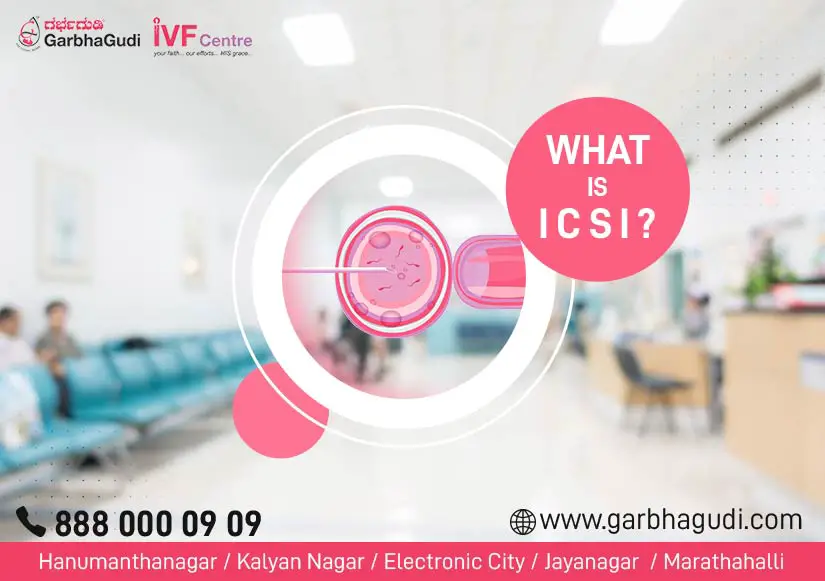ICSI stands for Intracytoplasmic Sperm Injection and is a specialization in In Vitro Fertilization. In couples where there is severe male infertility and is unable to conceive even after repeated fertilization attempts by conventional IVF treatment or after egg freezing (oocyte preservation), ICSI is the next step in fertility treatment. If a man does not have any sperm in his ejaculate, but he is producing sperm in his testis, these produced sperms are retrieved through a surgical step called as testicular sperm extraction (TESE). Sperm retrieved through TESE require the utilization of ICSI as they are not capable of fertilizing on their own. ICSI is also the method of choice in cases of retrograde ejaculation, where the sperm retrieval is from the urine. However, severe male infertility is not the only cause, where ICSI-IVF has opted. Other reasons where ICSI is the choice are:
• Previous IVF cycle had no or few fertilized eggs: In some cases, with a good number of eggs retrieval and healthy sperm count, but still, no eggs get fertilized. In such cases during the next IVF cycle, ICSI is tried.
• PGD is being done: PGD (Preimplantation Genetic Diagnosis) is an IVF technique which allows genetic screening of embryos. Here ICSI is essential for the embryo biopsy
• Couples who are facing severe male infertility
• When the only course of action is by sperm retrieval through TESE/MESA
Fertility Doctor monitors the progress with blood tests and ultrasounds.
Once enough good-sized follicles are produced, egg retrieval will be done, from the ovaries with a specialized ultrasound-guided needle.
The partner provides sperm samples the same day(unless you are using a sperm donor or previously frozen sperm)
Once the eggs are retrieved, an embryologist places the eggs in a specific culture medium.
Using a microscope and tiny needle, the embryologist injects a single sperm into the egg cytoplasm. The process will be for each egg retrieved.
. These sperm would never have been able to fertilize an egg naturally. The risk of defective birth in children conceived naturally is same as of with children conceived with IVF and ICSI. The risk of an ICSI-conceived child having defects is low, less than one per cent. While, earlier studies found some specific risks of defective birth, which may be due to lower quality sperm (sex chromosome abnormalities, defects in the urinary system or genitals, and other rare syndromes), more recent studies have found that the chance of this happening appears to be almost non-existent. Another risk of ICSI is a risk of the greater chance of multiple births than through natural conception. By carefully controlling the number of embryos transferred to the female partner’s uterus, this risk can be minimized. Multiple births as twins or more, may carry a higher risk of complications to both the mother and the babies. However, cases of triplets or more are extremely rare. If your fertility specialist doctor recommends ICSI, find out the reason for the same and evaluate the risks and benefits. IVF with ICSI makes it possible
for thousands of couples around the world to have a baby when the conditions are not conducive for natural conception.
Consult a good fertility doctor and find out whether it’s the right treatment for you and your partner.






